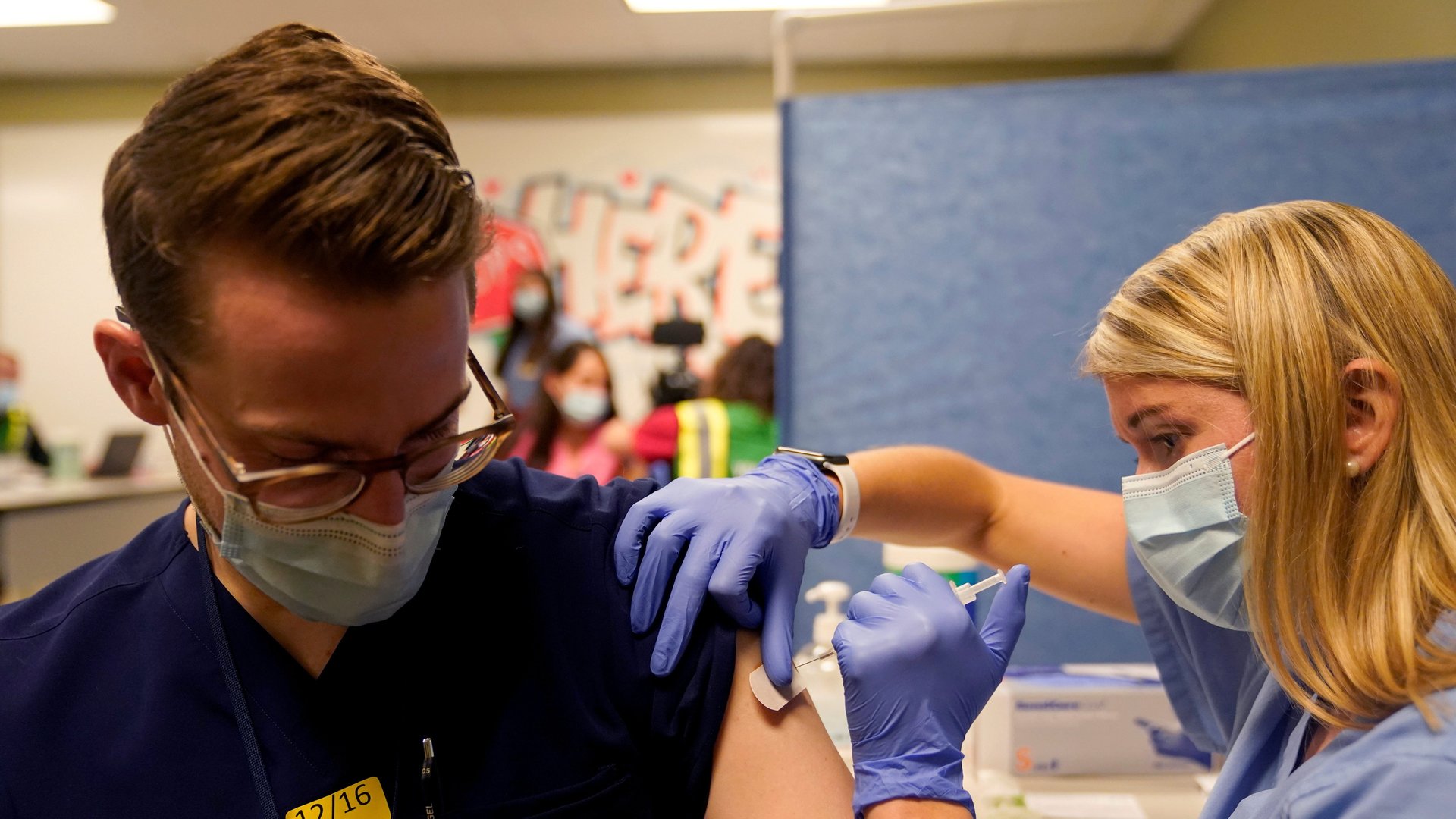How to convince someone to get the Covid-19 vaccine
“The aide is very good,” Carol Rosenstock said. “She is really attentive to my mother. She’s the one who takes her to appointments, and keeps track of what the doctor said, and if she’s taken her pills. . . . My mom likes her.”


“The aide is very good,” Carol Rosenstock said. “She is really attentive to my mother. She’s the one who takes her to appointments, and keeps track of what the doctor said, and if she’s taken her pills. . . . My mom likes her.”
Rosenstock lives in Brookline. Her widowed mother, who has memory issues and who has used a walker since recovering from COVID last spring, lives in New York. The whole family felt fortunate to have such a lovely woman helping mom.
But.
“She keeps saying she’s not ready to get vaccinated,” Rosenstock said. “She comes up with reasons. Originally it was that she has allergies. Then she couldn’t do it because she takes care of her stepfather, and can’t be out of work [if she has a bad reaction to the vaccine]. Then she said there wasn’t enough testing . . . My mother’s doctor is getting more and more concerned.”
But.
“We don’t want to challenge her directly and alienate her,” Rosenstock said. “It’s a delicate dance.”
Welcome to the Delta variant’s America, where an estimated 93 million people who are eligible remain unvaccinated, and as cases and deaths mount, anger is building.
How do you talk to a person who’s dug in? Perhaps no one has more experience being in the middle of intimate warring parties than Mandy Connor, the owner of Hummingbird Bridal and Events, on Newbury Street.
Even before COVID, planning the happiest day of a couple’s life caused strife, but the challenge of unvaccinated guests is so intense that people are spelling out expectations on their wedding invites (“We look forward to celebrating with all of our vaccinated guests . . . ”).
“The best defense is to encourage empathy,” Connor said. “To ask guests to step outside themselves and ask, ‘If your choice not to receive the vaccine results in someone else getting ill or dying, is that something you could live with?’”
Or: “If you refuse to get vaccinated that means grandma can’t come to this wedding. She’s 83. Are you going to rob her of this opportunity?”
But months into the new epidemic of vaccine hesitancy, the battle lines have hardened. How can you approach your vaccine-hesitant brother-in-law in a fresh way if you have been nagging him since April?
The key is to offer the person a “face-saving” way to step down from their “dogmatic position,” said Ian Johnstone, a professor at the Fletcher School at Tufts University — and a veteran of the United Nations’ secretary-general’s office and Department of Peacekeeping Operations.
Presenting a new study showing the effectiveness of the vaccines, paired with an appeal to the person’s “better angels,” might be effective, he said.
“You want them to be able to say, ‘I did this because I was persuaded it was good for the community. I’m doing this for others, not myself.’”
Alfred S. Titus, Jr., a retired NYPD homicide detective who was a member of the force’s hostage negotiation team, suggests debunking common misconceptions about the vaccine — that it tracks you or makes you infertile, among them.
“Whichever yields the greatest response from the individual would be the one I’d go back to and expand on,” said Titus, an assistant professor at John Jay College of Criminal Justice.
Sometimes it’s less about trying to win over one holdout than spreading a wide net, said Girl Scout Ella Dimeo, 13, of Falmouth, who sold 4,919 boxes of cookies last season to become Eastern Massachusetts’ top seller. (A spokeswoman emphasized that the Girl Scouts organization has no position on vaccines.)
Wherever she went with her mother or father or grandmother, the cookies went, too. “I tried to sell cookies to everyone I met,” Ella said.
The takeaway, her mother explained, was if there were a better ground game in bringing vaccines to the people — if vaccines were accessible “everywhere you want to be” — like cookies — the vaccination rate might increase.
As for people who find themselves in the same position as Rosenstock, North Shore etiquette expert Jodi RR Smith said the family should explain to the aide that their first choice is for the aide to stay.
But: “Make it clear that they must have the vaccine to continue working with you,” she said, “and that if they opt not to vaccinate, you will understand that they have made the decision not to continue working with you.”
If all else fails, there’s always old-fashioned nagging. That’s the approach local condominium attorney Richard Brooks took with his sister-in-law, Brenda Brooks.
On weekly calls with his brother he’d ask that she be put on speaker. He’d make his case, and then go in for the close: “I’m not going to your funeral.”
Postscript: Brenda Brooks got her first shot and is awaiting her second, and Richard Brooks has turned his diplomacy to his step-niece, an adult who does not consider the vaccine safe — and who recently posted a picture of herself skydiving on Facebook.
“You gotta be kidding me!” he thought, as a new challenge began.